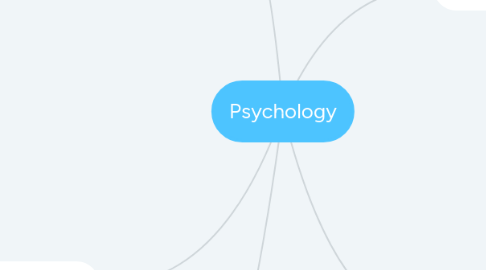
1. Critical Thinking
1.1. Systematically question and evaluate information using well-supported evidence
1.1.1. Major Biases
1.1.1.1. Ignoring evidence
1.1.1.1.1. vaccine moms "vaccines cause autism"
1.1.1.2. Inaccurately judging source credibility
1.1.1.2.1. i trust leonardo dicaprio
1.1.1.3. Using relative comparisons
1.1.1.3.1. 9 out of 10 dentists
1.1.1.4. Accepting after-the-fact explanations
1.1.1.4.1. yeah of course hitler got angry
1.1.1.5. Failing to see our own inadequacies
1.1.1.6. Taking mental shortcuts
1.1.1.6.1. quick sometimes not accurate
1.1.1.7. Seeing relationships that don’t exist
1.1.1.7.1. correlation doesn't equal causation
1.1.1.8. Misunderstanding/not using statistics
1.1.1.8.1. if you get red 5 times in a row WHOAAAAAAAAAA MAGIC
2. Levels of Analysis
2.1. Biological
2.1.1. How the body contributes to mind/behavior
2.1.1.1. Brain systems
2.1.1.2. Neurochemistry
2.1.1.3. Genetics
2.2. Individual
2.2.1. How individual differences influence mind/behavior
2.2.1.1. Perception and cognition
2.2.1.2. Behavior
2.3. Social
2.3.1. How groups influence behavior
2.3.1.1. Interpersonal behavior
2.3.1.2. Social cognition
2.4. Cultural
2.4.1. How mind/behavior differs across cultures
2.4.1.1. Norms
2.4.1.2. Beliefs
2.4.1.3. Values
3. Subfields
3.1. Developmental psychology
3.1.1. Changes over time
3.2. Clinical psychology
3.2.1. Psychological disorders and treatments
3.3. Social psychology
3.3.1. Influence of others
3.4. Cognitive psychology
3.4.1. Attention, language, memory, perception
3.5. Neuroscience
3.5.1. Nervous system
4. Major Movements
4.1. Introspection
4.1.1. Wilhelm Wundt (1832-1920)
4.1.2. Careful reflection and reporting of mental experiences
4.2. Structuralism
4.2.1. Edward Titchener (1867-1927)
4.2.2. Conscious experience can be broken down into basic underlying components
4.3. Functionalism
4.3.1. William James (1842-1910)
4.3.2. The adaptive purpose, or function, of mind and behavior
4.4. Psychoanalysis
4.4.1. Sigmund Freud (1865-1939)
4.4.2. Bringing unconscious thoughts into awareness
4.5. Behavioralism
4.5.1. John B. Watson (1878-1958) and B.F. Skinner (1904-1990)
4.5.2. Emphasizes the role of environmental forces in producing behavior
4.6. Cognitive Revolution
4.6.1. George Miller (late 1950s)
4.6.2. Study of mental functions such as intelligence, thinking, language, memory, and decision making
